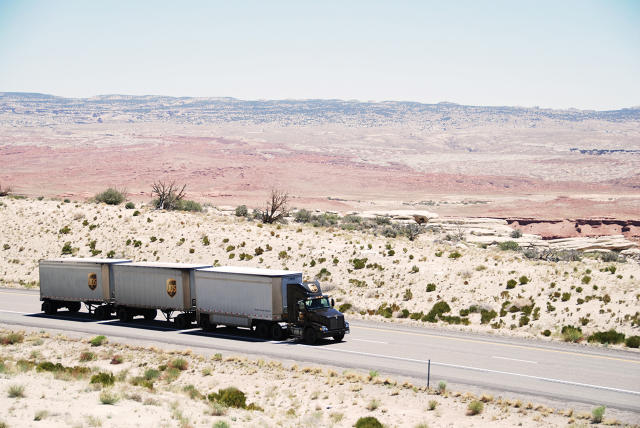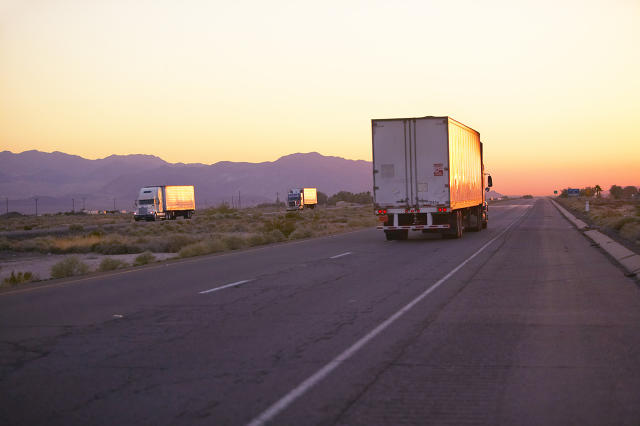Why Truck Drivers Could Be The First Casualties Of The Robot Age
Self-driving trucks make so much sense already that it's a scary time to be one of the millions of Americans who depends on the trucking economy.
There are 3.5 million truck drivers in America, 5.2 million people who have non-driving roles in the trucking industry, and millions more who depend on trucking for a living, including people who work at truck stops and gas stations. Why is this important particularly? Because that's an awful lot of people who depend on an industry that's likely to employ far less people in the future.
This future is already upon us. Trucks are already going autonomous. Just this May, Daimler launched the "Inspiration Truck," the first self-driving 18-wheeler licensed to be tested on the open road. Other manufacturers are working on similar products, notably Volvo, which has tested "platooning," a practice in which groups of unmanned vehicles are led by one lead vehicle. Also, truckers are relatively expensive, earning an average of $40,000 a year, which makes their jobs a juicy target for automation. And, trucks often drive on long, relatively empty roads, which makes them easier to automate than vehicles that have to navigate city environments.

The idea that robots could take away jobs from large numbers of Americans seems theoretical until you consider actual jobs that could be threatened in one industry like trucking. Then, it all becomes a lot more scary. "We are facing the decimation of entire small town economies, a disruption the likes of which we haven’t seen since the construction of the interstate highway system itself bypassed entire towns," says New Orleans writer Scott Santens, in a recent post on Medium.
Santens brings together a lot of evidence to back up his claim, starting with the fact that truck driving is the biggest source of employment is more than half of U.S. states. It's also one of the last sources of employment that still pays people decently even if they haven't been to college:
Truck driving is just about the last job in the country to provide a solid middle class salary without requiring a post-secondary degree. Truckers are essentially the last remnant of an increasingly impoverished population once gainfully employed in manufacturing before those middle income jobs were mostly all shipped overseas.

And human drivers are fallible: 330,000 trucks were in involved in accidents in 2012, 90% of which were the drivers' fault. Automation could produce many fewer fatalities and injuries, forecasts show, while at the same time reducing insurance costs and liability risks for trucking companies.
Of course, this won't happen overnight. The Daimler truck still requires a driver to be on-hand in case something goes wrong, and there are a mass of legal and regulatory issues to be worked out. But the shift is surely coming, probably as soon as the second half of the next decade. "Basically, the only real barrier to the immediate adoption of self-driven trucks is purely legal in nature, not technical or economic," Santens says.
The big long-term question is what people are going to do for money when there's nothing like work to do. Santens is an advocate for a universal basic income—a radical idea for ending poverty that's gaining increasing support. Reading Santens, you can see why we might need it.
No comments:
Post a Comment